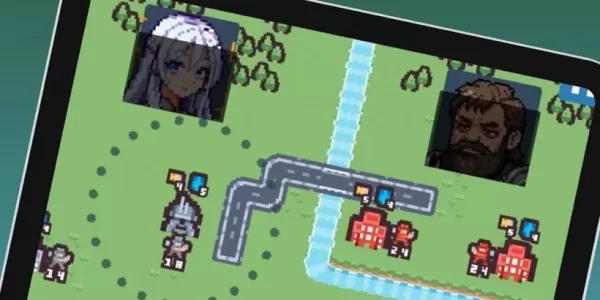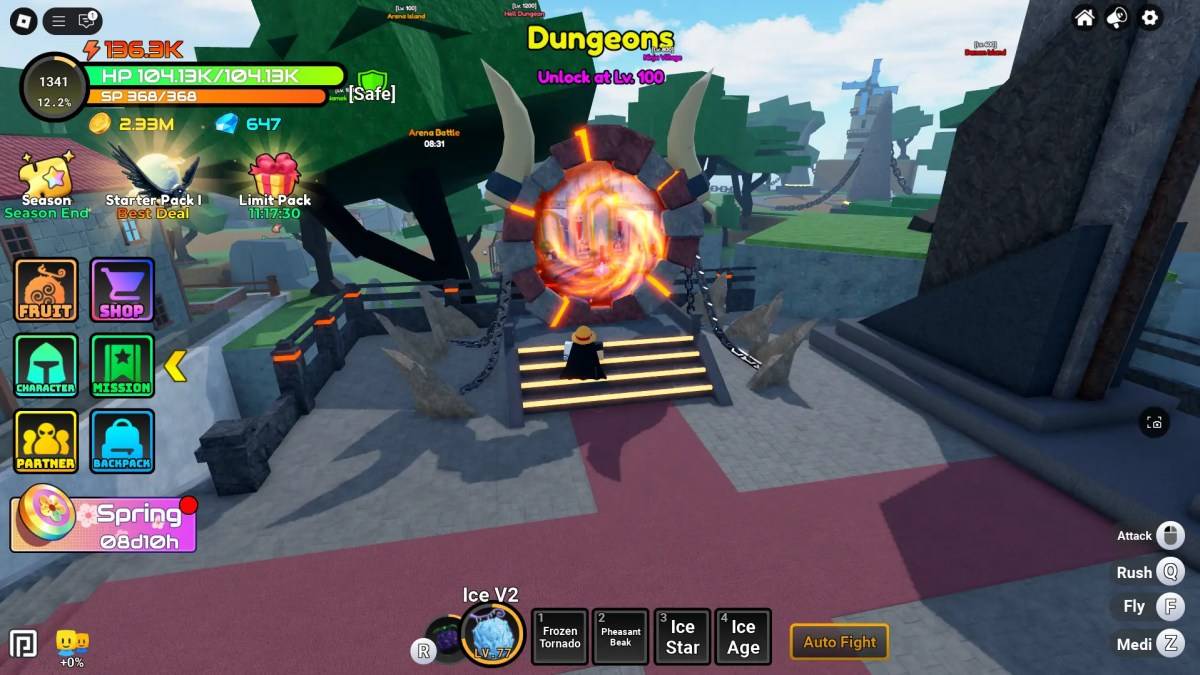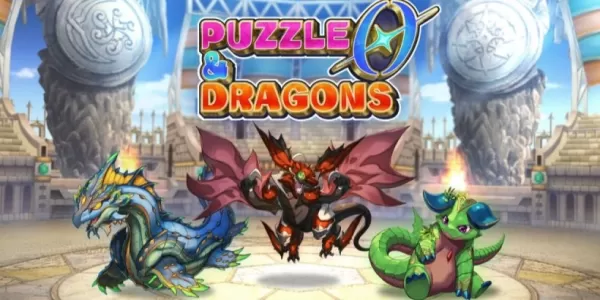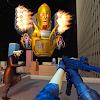This extensive interview with Andrew Hulshult, a prominent video game composer, delves into his career, creative process, and personal preferences. He discusses his work on various titles, including Rise of the Triad 2013, Bombshell, Nightmare Reaper, Prodeus, Amid Evil, and the DOOM Eternal DLC, offering insights into his collaborations and creative choices. The conversation also touches upon his gear, including his guitar setup and preferred pedals, and his approach to composing music for both games and film. Hulshult shares anecdotes about his experiences, challenges, and inspirations, providing a candid and engaging perspective on his work and the broader video game music industry. He also reveals his favorite bands, discusses his daily routine, and shares his thoughts on the evolution of his musical style and the industry itself. The interview concludes with a look at his future projects and a glimpse into his personal life.
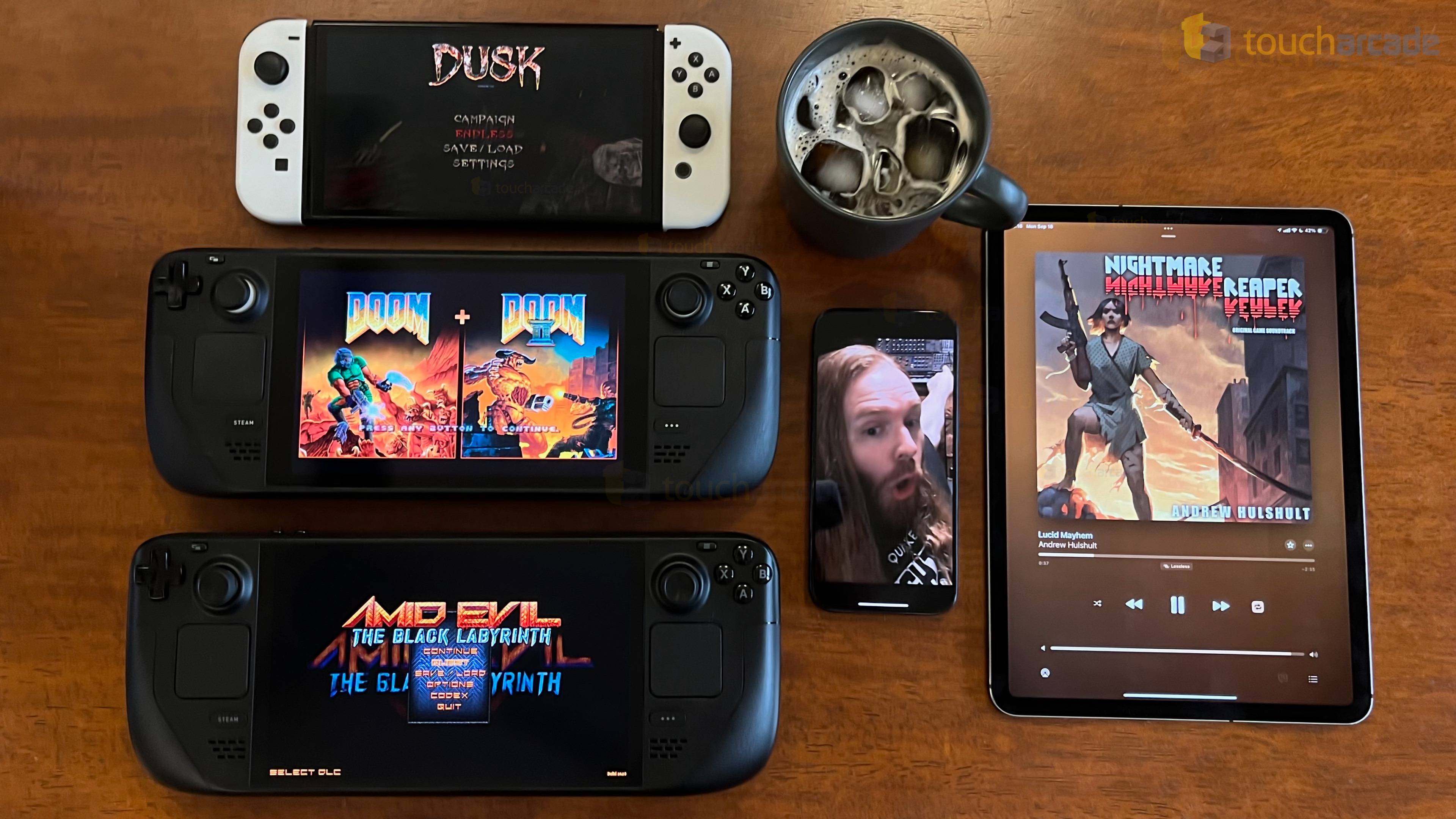
TouchArcade (TA): For our readers unfamiliar with your work, could you briefly introduce yourself and your profession?
Andrew Hulshult (AH): I'm Andrew Hulshult, primarily a video game composer and sound designer, though I'm branching into film scoring. I also enjoy composing music independently, outside of game or film projects. My work encompasses sound design, soundtracks, and occasionally, voice acting.
TA: How did you become involved with the canceled Duke Nukem project and Rise of the Triad 2013?
AH: My involvement with Duke Nukem 3D Reloaded (around 2010) began through Frederik Schreiber of 3D Realms. He was remaking Duke 3D maps in Unreal Engine 3. I saw his work, contacted him, and offered my music services. This led to creating some tracks. That experience eventually led to Apogee (Terry Nagy) and Dave Oshry approaching us to work on Rise of the Triad 2013.
TA: You've worked on many significant titles, including DOOM Eternal DLC. How has your approach to music and your professionalism evolved since your earlier work?
AH: My early work was a steep learning curve, navigating contracts and financial aspects alongside the creative process. I initially almost left the industry after some projects didn't perform well, but I soon realized how much demand there was for my skills. It’s been a constant learning process, balancing artistic expression with the business realities of the industry to avoid burnout.
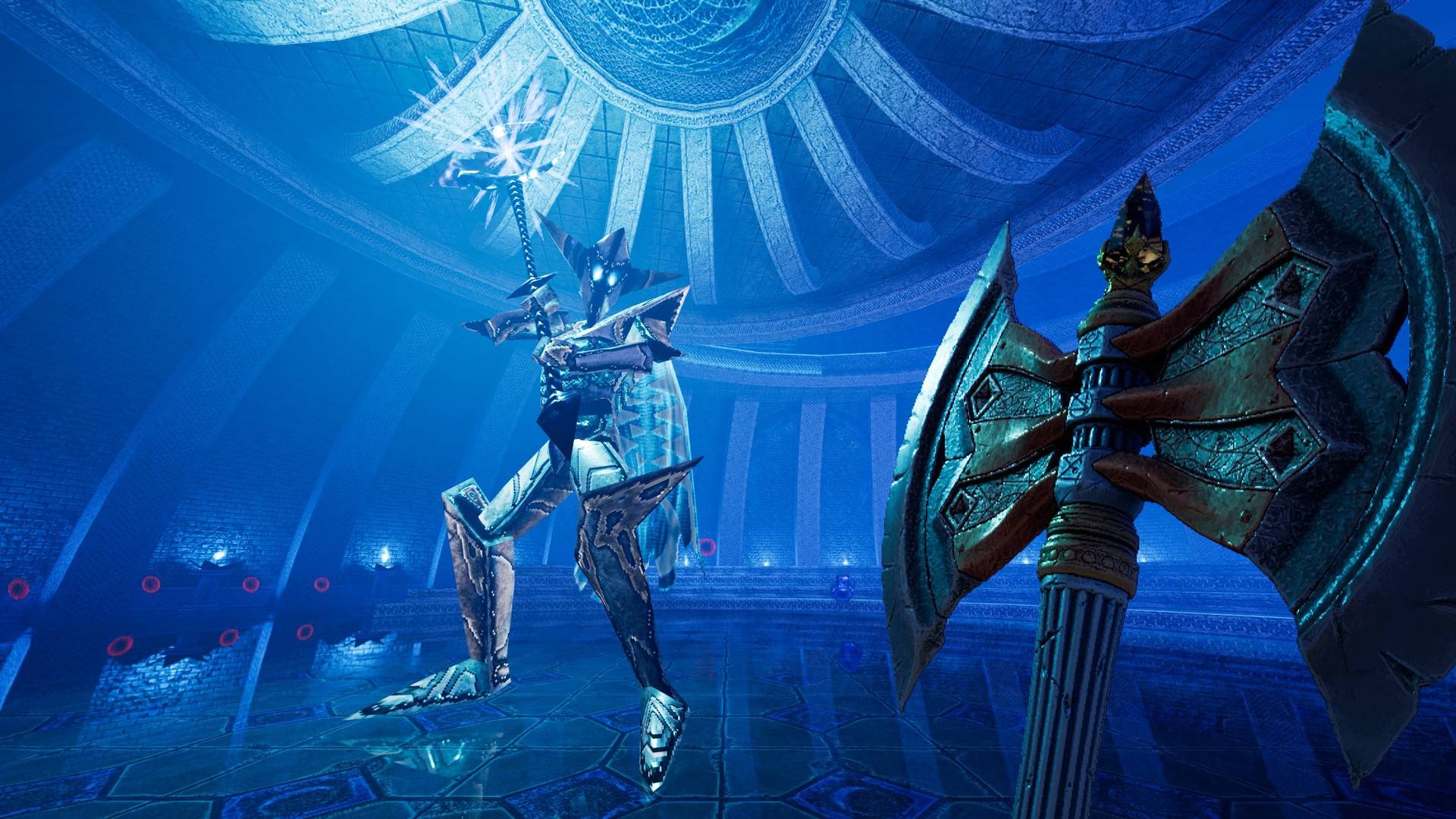
TA: What's the biggest misconception about video game music?
AH: That it’s easy and unimportant. It requires significant skill, understanding of game design, and the ability to communicate effectively with developers to create music that enhances the player experience.
TA: Let's discuss Rise of the Triad 2013. Many fans praise the soundtrack, but some initial responses were mixed. How did you approach creating your own style while respecting the original game's legacy?
AH: Respecting the original composers (Lee Jackson and Bobby Prince) was paramount. I aimed to create something that honored their work while incorporating my own rock and metal influences. It was a balancing act, and I received valuable feedback from Terry Nagy, helping me refine the sound.
TA: Bombshell and Nightmare Reaper feel more like Andrew Hulshult metal albums than game soundtracks. Was this a turning point where you realized your ability to blend metal into these games?
AH: Around that time, I experimented more with my own style, incorporating my metal influences more prominently. It was a natural progression, showcasing my original compositions while still serving the game's atmosphere.
TA: Did you fear being typecast as a "metal guy"?
AH: I still have that concern sometimes. I strive for variety and enjoy experimenting with different instruments and styles, ensuring I don't become limited to one genre.
TA: Let's talk about Amid Evil. You experienced a family emergency during its DLC soundtrack creation. How did that affect your work?
AH: My father's heart attack during the Amid Evil DLC's development deeply impacted me. Composing became an outlet, and many of the high-energy tracks reflect the intense emotions I was experiencing.
TA: The track "Splitting Time" in the Amid Evil DLC has been compared to Mick Gordon's work. Was Killer Instinct an influence?
AH: While I wasn't directly influenced by Killer Instinct, Mick Gordon's work on the Killer Instinct reboot was inspiring, particularly its production quality.
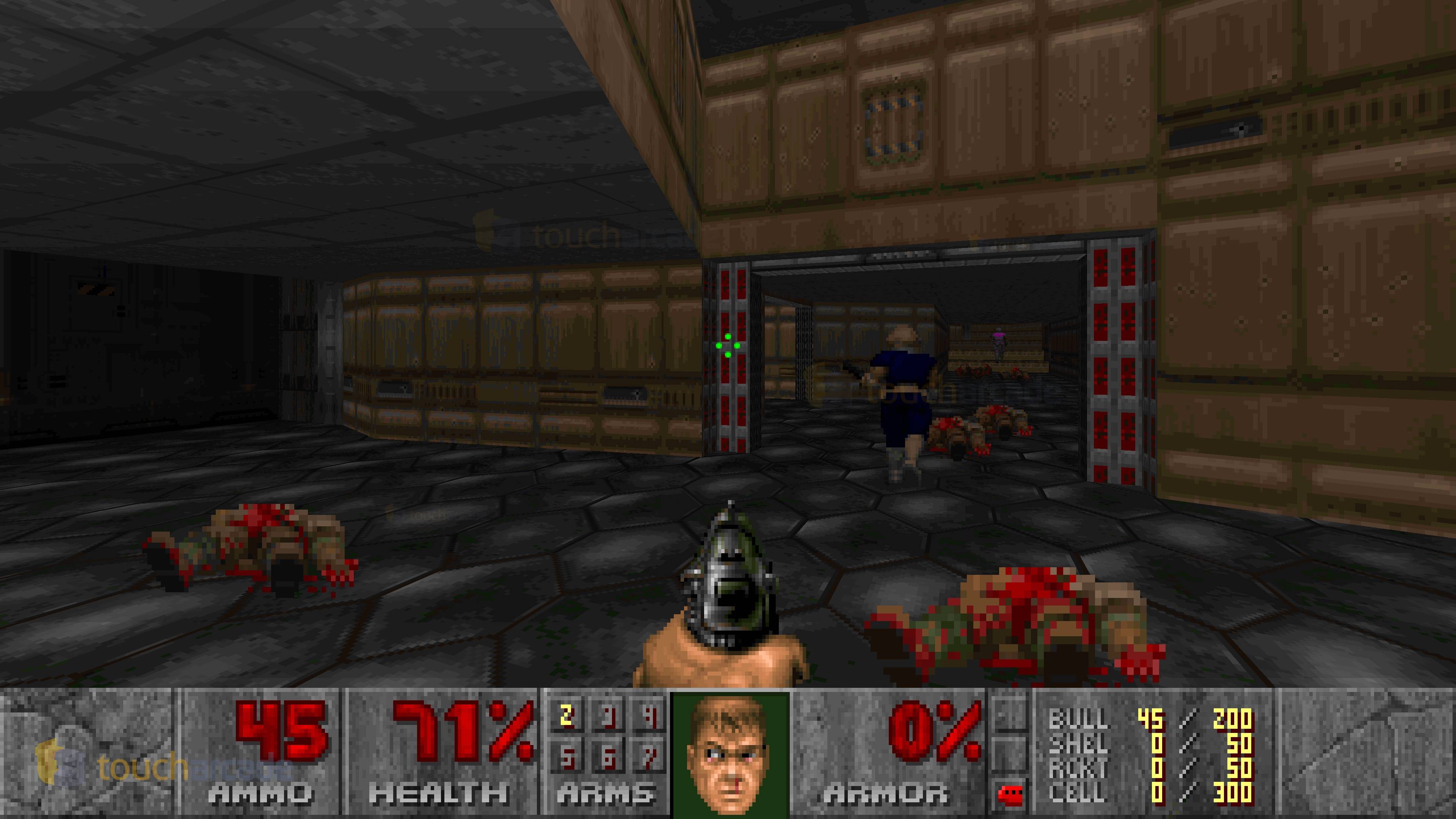
TA: Nightmare Reaper feels like a metal album. Dave Oshry's tweet about you "putting your whole bussy into it" is memorable. How did you approach this project?
AH: Bruno, the developer, wanted a metal album from me. While it had to remain a game soundtrack, it's very close to a standalone metal record.
TA: How do you balance dynamic range in game soundtracks?
AH: I plan for rests and lulls within the music, creating a mix of ambient, low-energy, and high-energy tracks that transition smoothly.
TA: Prodeus features a unique blend of metal, industrial, and bass-heavy sounds. What's your favorite track and any interesting anecdotes from its creation?
AH: "Cables and Chaos" is my favorite. The soundtrack's creation spanned the pre- and post-pandemic periods, resulting in a noticeable shift in intensity between the first and second halves. "Spent Fuel" is notable for incorporating sounds of Geiger counters and nuclear reactions into the composition.
TA: You worked on WRATH: Aeon of Ruin. How was that experience, given the game's development challenges?
AH: The development of WRATH had its difficulties, impacting the creative process. However, the final product has a cohesive soundtrack, despite some initial disagreements on the musical direction.
TA: The DOOM Eternal DLC was a significant achievement. How did it feel to work on official DOOM music after IDKFA?
AH: Working on the DOOM Eternal DLC was surreal. IDKFA acted as a sort of resume, leading to this opportunity. The collaboration with id Software was fantastic, and the team was incredibly supportive.
TA: "Blood Swamps" is hugely popular but not officially available. How do you address fan requests for it?
AH: Bethesda and id own the rights. While I'm happy with the result and understand fan enthusiasm, its official release is entirely up to them.
TA: What was your thought process behind "Blood Swamps"?
AH: id Software encouraged me to go wild. I aimed for a unique sound that respected the existing DOOM music while showcasing my own style. The collaboration with David Levy and Chad Mossholder was crucial to the final product.
TA: You remastered the IDKFA soundtrack. What was it like revisiting those songs?
AH: The remastering focused on preservation and improving the overall sound quality, addressing some of the limitations of the original recording.
TA: You created a near-complete DOOM II soundtrack. How did you approach this, balancing your current style with the DOOM II aesthetic?
AH: I aimed for a fresh sound that reflected my current musical style, distinct from the IDKFA DOOM I tracks. The collaboration with Adam Pyle was instrumental in shaping the final product.
TA: What are your thoughts on Metallica's recent albums?
AH: While they won't replicate their classic works, I still find moments of great songwriting in their newer albums.
TA: What's the most random piece of music memorabilia you own?
AH: A vinyl copy of Pantera's Great Southern Trendkill and a tour plaque from their Japanese tour.
TA: How do you like your coffee?
AH: Cold brew, black.

